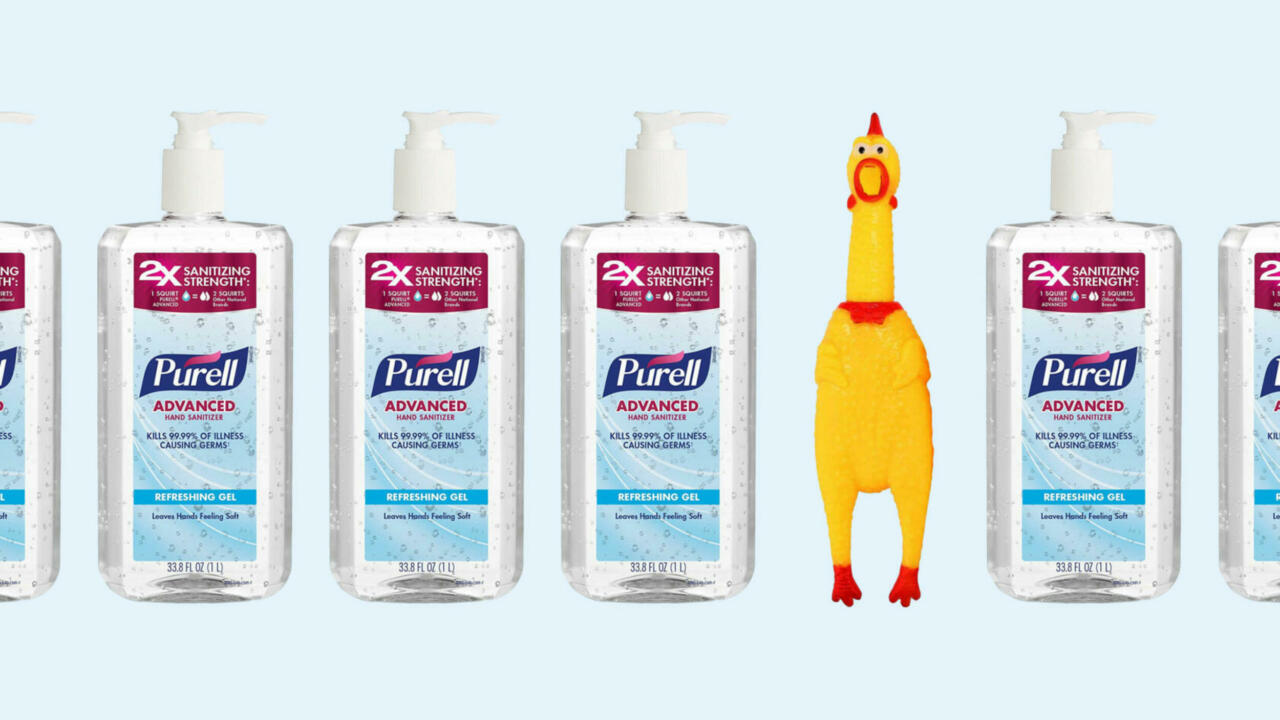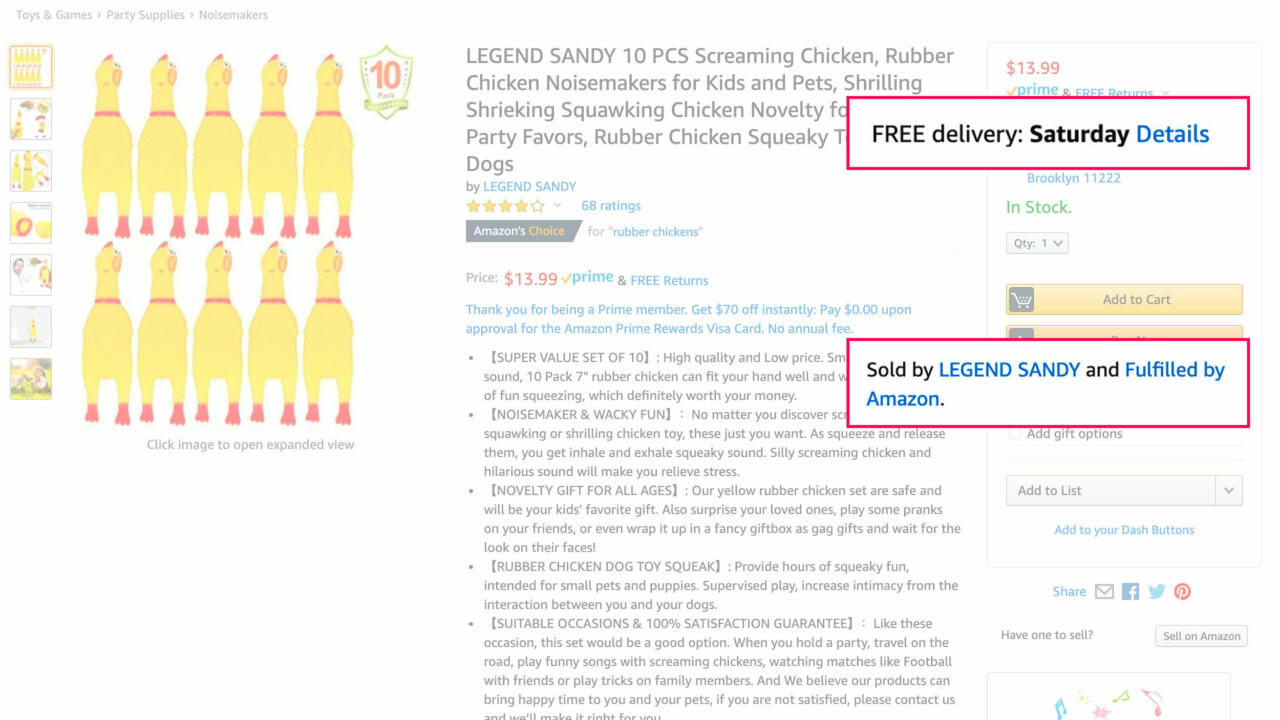Hello, friends,
During these difficult times, we are learning that what is considered an essential service can vary tremendously. In New York, for instance, the governor has declared that liquor stores and farmers’ markets are essential but barber shops and churches are not. But in Florida, the governor has declared that churches and gun stores are essential but gatherings of more than 10 people in public are not.
The differences extend to our online lives, as well. Amazon announced in mid-March that it would no longer accept new nonessential products at its warehouses. But investigative data journalist Maddy Varner found that Amazon will still currently fulfill or ship from its warehouses such seemingly nonessential items as a bowling ball, a 10-pack of rubber chickens, and a prom dress.
Amazon workers in the U.S. who are fighting for more protective equipment and hazard pay say that the work is just too dangerous to justify anything but necessary goods. “It needs to stop shipping nonessential items,” an Amazon worker in New York City told The Markup. “We need to have a say in that.”
In one of many job actions at Amazon facilities, workers at a Michigan warehouse walked out on April 1, demanding that the warehouse be shut down for two weeks after three workers fell sick with COVID-19. Mario Chippen, a worker, told the local TV station WXYZ that he was outraged that he had to pack up sex toys and other frivolous goods. “They should not be selling nonessential items,” Chippen said. “Dildos are not essential items.”
Amazon has responded to worker demands with an array of measures, including paid sick leave for those diagnosed with COVID-19 and increasing worker pay. But Amazon has been vague about what it considers an essential item.
When it announced its policy in mid-March, Amazon did not say it would stop shipping what was already in its warehouses, essential or not. It defined incoming “essential” products loosely, saying that “most of the products” it would now accept in its warehouses were in six categories: “Baby Products,” “Health & Household,” “Beauty & Personal Care,” “Grocery,” “Industrial & Scientific,” and “Pet Supplies.”
Since then, Amazon has quietly relaxed its definition of what is essential, while also extending indefinitely the date by which “operations will be fully restored.” On March 27, archived snapshots of the page indicated that Amazon would broaden the list of new shipments it would accept from sellers, on an unspecified “item-by-item” basis.
Amazon spokesperson Andrea Ruge told The Markup that the company is still prioritizing essential items, but “we have begun selectively bringing more products from our selling partners into our fulfillment centers.”
Meanwhile, in other countries, Amazon appears to have stricter shipping policies. In Italy, France, and India, Amazon has said it will stop taking orders from customers for nonessential goods, whether or not those items are already in its warehouses.
To find out more about what is being shipped where, we are hoping that you, dear reader, will help us investigate!
Please tell us whether you can find a rubber chicken—or other unimportant items—for sale on Amazon in your region of the world.
We are looking for nonessential items that are described as “Ships from and sold by Amazon.com” or “Fulfilled by Amazon”—meaning they are shipped through Amazon warehouses—because those items are the ones that Amazon workers must package and send. You can identify the seller and whether the product is fulfilled by Amazon by looking under the Buy Now button.
Send us your screenshots at rubberchicken@themarkup.org!
Thanks as always for reading. Stay safe and healthy!
Best
Julia Angwin
Editor-in-Chief
The Markup

